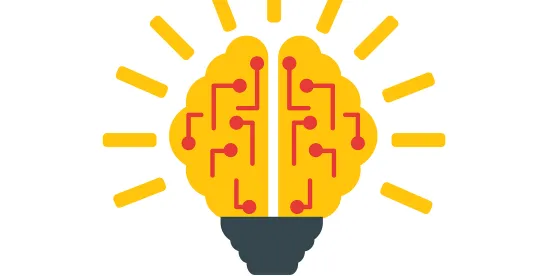In a London courtroom, lawyers faced off in early June in a legal battle that could shape the future relationship between artificial intelligence and creative work. The case pits Getty Images, a major provider of stock photography, against Stability AI, the company behind the popular AI art generator, Stable Diffusion.
At the heart of the dispute is Getty's claim that Stability AI unlawfully used 12 million of its copyrighted images to train its AI model. The outcome of this case could establish a critical precedent for whether AI companies can use publicly available online content for training data or if they will be required to license it.
On the first day of trial, Getty's lawyer told the London High Court that the company “recognises that the AI industry overall may be a force for good,” but that did not justify AI companies “riding roughshod over intellectual property rights.”
A Key Piece of Evidence
A central component of Getty's case is the observation that Stable Diffusion's output sometimes includes distorted versions of the Getty Images watermark. Getty argues this suggests its images were not only used for training but are also being partially reproduced by the AI model.
Stability AI has taken the position that training an AI model on images constitutes a transformative use of that data. The argument is that teaching a machine from existing information is fundamentally different from direct copying.
The Potential Economic Impact
The verdict in this case will have significant implications for both the technology and creative sectors.
- If Getty's position prevails: AI companies could face substantial new costs for licensing training data. This might raise the barrier to entry for smaller startups and concentrate AI development among larger corporations with deeper financial resources.
- If Stability's position prevails: The use of online images for AI training could be affirmed, potentially accelerating AI development. However, photographers, illustrators, and other creators have expressed concern that this would devalue their work by allowing it to be used as free raw material for systems that could one day compete with them.
A Broader Legal Landscape
The Getty case is not the only high-profile AI copyright battle currently unfolding. Recently, two major lawsuits were filed in the United States that illustrate the widespread nature of these disputes across different industries and content types.
Three days after the Getty suit got underway, Disney and Universal jointly filed a 110-page lawsuit against AI image generator Midjourney, claiming it illegally made copies of their copyrighted works. The entertainment giants allege that Midjourney ignored their earlier requests to cease violating their intellectual property rights, stating "Midjourney is the quintessential copyright free-rider and a bottomless pit of plagiarism."
The lawsuit includes dozens of examples of images generated by Midjourney that allegedly depict copyrighted characters such as Darth Vader, Homer Simpson, Shrek, and the Minions. AI copyright issues affect high-value entertainment properties and stock photography alike. The complaint describes the image generators as a “bottomless pit of plagiarism.”
A Global Legal Question
The Getty proceedings are further complicated by differing legal standards across jurisdictions. The case is being heard in the UK, where copyright law includes "fair dealing" exceptions. Meanwhile, the Disney / Universal and Reddit suits were filed in the US, which operates under the broader "fair use" doctrine. This doctrine has historically provided more flexibility for transformative uses of copyrighted material. The decision by the UK high court to allow the case to proceed highlights the international dimension of this legal question.
The Innovation Debate
Stability AI has suggested that a ruling against them could negatively impact the UK's technology sector, arguing it would be "incompatible with the government’s publicly stated aims" to be a leader in AI. This frames the issue as one of national innovation and competitiveness.
Conversely, representatives of the creative industries argue that AI should operate under the same commercial rules as other sectors. They point out that industries like film and publishing regularly pay to license the music and images they use. From this perspective, AI development should include the cost of licensing the creative work that makes it possible.
A Technical Question at the Core
Ultimately, the court must consider the technical nature of AI training itself. The central question is whether the process involves making copies of images, even temporarily, or whether it transforms them into a complex series of mathematical weights and statistical patterns from which it learns. The US Copyright Office has initiated a broad inquiry into this very topic, highlighting its complexity and importance. If the court determines that actionable copies are made during training, it could favor Getty's claim. If it finds the process is sufficiently transformative, it may support Stability AI's position.
What Happens Next
As these and other court proceedings move along, the legal and regulatory landscape for AI remains in flux. In the UK, the proposed Data Protection and Digital Information Bill, which touches on data use for AI, continues its legislative process. In the US, the Copyright Office has been studying the issue and encouraging "market-driven solutions" through dialogue and voluntary agreements between tech and creative industries, arguably increasing the importance of high-profile litigation between major US companies and the emerging AI leaders.
The decisions in the Getty and Disney/Universal cases will likely be groundbreaking. They will confront a question that has shifted from the realm of sci-fi to practical law: In the era of AI, who possesses — and who compensates for — the data that drives creativity?
"Stability AI unlawfully copied and processed millions of images protected by copyright and the associated metadata owned or represented by Getty Images absent a license to benefit Stability AI’s commercial interests and to the detriment of the content creators." Getty Statement





 />i
/>i

